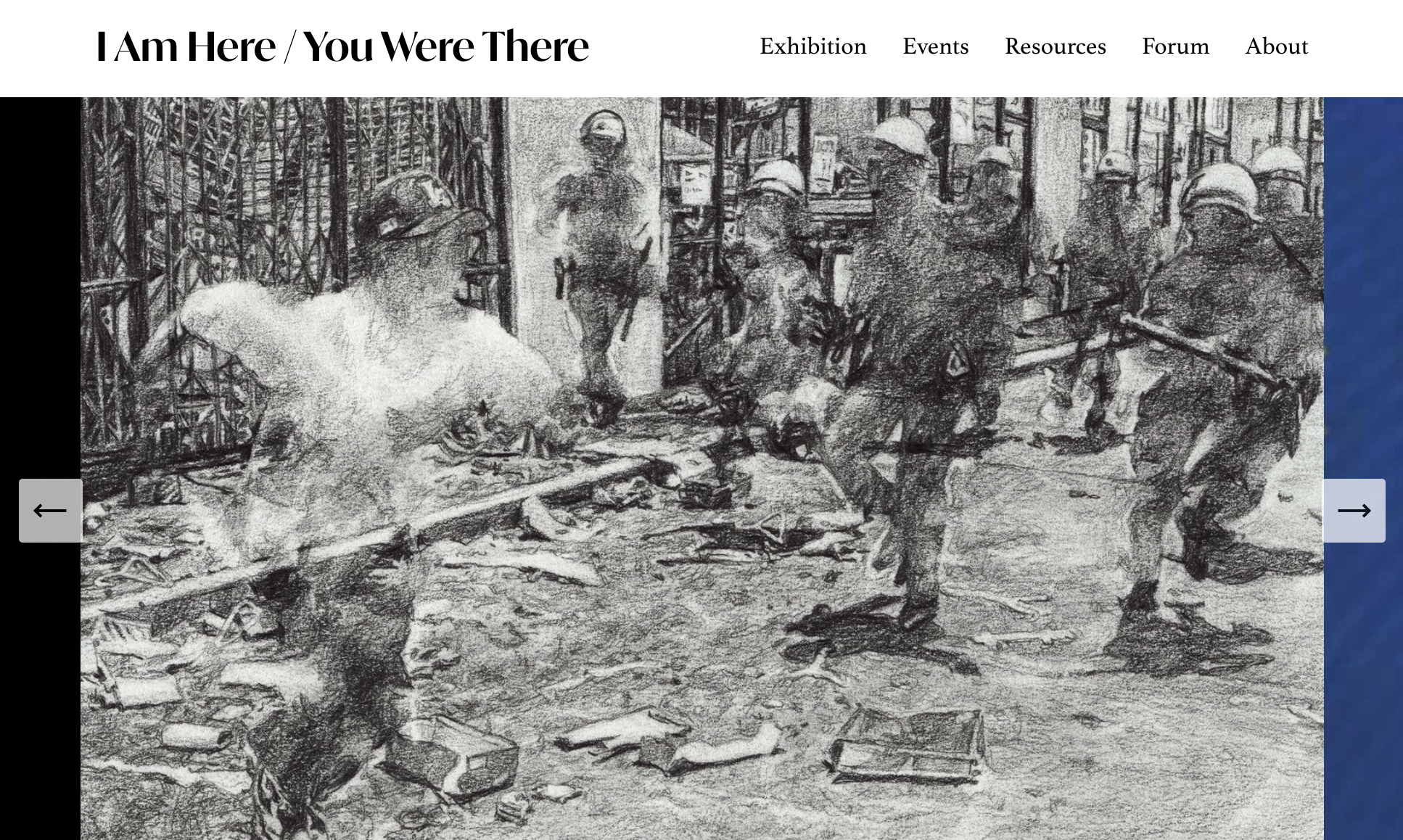I Am Here/You Were There: Archiving Transnational Memory Within the Korean Diaspora
Co-curated with Eunice Uhm and Phillip Kim
May 20-August 31, 2022
Online exhibition
In A Map to the Door of No Return, Dionne Brand discusses the violent rupture of transatlantic migration, in which one’s past is cut off from and forgotten in the present. Disappointed in her grandfather who could not remember the name of their tribe in the Old World, she writes, “The rupture this exchange with my grandfather revealed was greater than the need for familiar bonds. It was a rupture in history, a rupture in the quality of being. It was also a physical rupture, a rupture of geography.” Brand addresses the precarious conditions of diaspora: when the discrepancy between “here” and “there” erases one’s personal and collective history, how does one inhabit the present? In other words, how do (im)migrants make sense of their being when their past is severed from them?
I Am Here/You Were There: Archiving Transnational Memory Within the Korean Diaspora explores the “unknown” histories of the Korean diaspora in the works of three artists, Jiwon Choi, Jesse Chun, and Kang Seung Lee. It considers the “unknown” as a site of rupture that continues to ripple through the Korean diaspora as a silent yet haunting presence. This silence within the Korean diaspora is particularly political if one were to consider the relationship between Korea and the United States. The naming of the Korean war as the Forgotten War alludes to a black hole in the collective memory; therefore, in the Korean diaspora, the act of forgetting is made official. In Haunting the Korean Diaspora, Grace M. Cho writes, “If the historical condition of possibility for the Korean diaspora is the Forgotten War, the psychic condition is that of enforced forgetting.” In consideration of the enforced political forgetting of Korean diasporic history, I Am Here/You Were There explores the ways in which Korean Americans navigate the transnational and transgenerational history of Korean diaspora by posing a set of pressing questions: What are the historical and political conditions of Korean diaspora? What are the multitude of ways that the history of the Korean diaspora is entangled with the US and Korea? In other words, how is the Korean diaspora implicated in the history of colonialism and imperialism in Korea? How do Korean Americans envision the past, present, and future?
I Am Here/You Were There takes its title from a popular phrase used in immigration activism: “We are here because you were there.” Inspired by generations of immigration and Korean American activism, this exhibition emphasizes the lived histories of Korean Americans and aims to explore, rather than define, the ways in which history continues to shape the realities of those living in the Korean diaspora. Accompanied by a keynote lecture by Dr. Grace M. Cho (author of Tastes Like War and Haunting the Korean Diaspora), a musical performance by St. Lenox, and a workshop series by Hwa Records (a collaborative team of Korean diasporic performance-based artists and healers), this exhibition considers the unknown as a site of potentiality, engaging with the complex web of places and temporalities that unfolds in the histories of the Korean diaspora.
